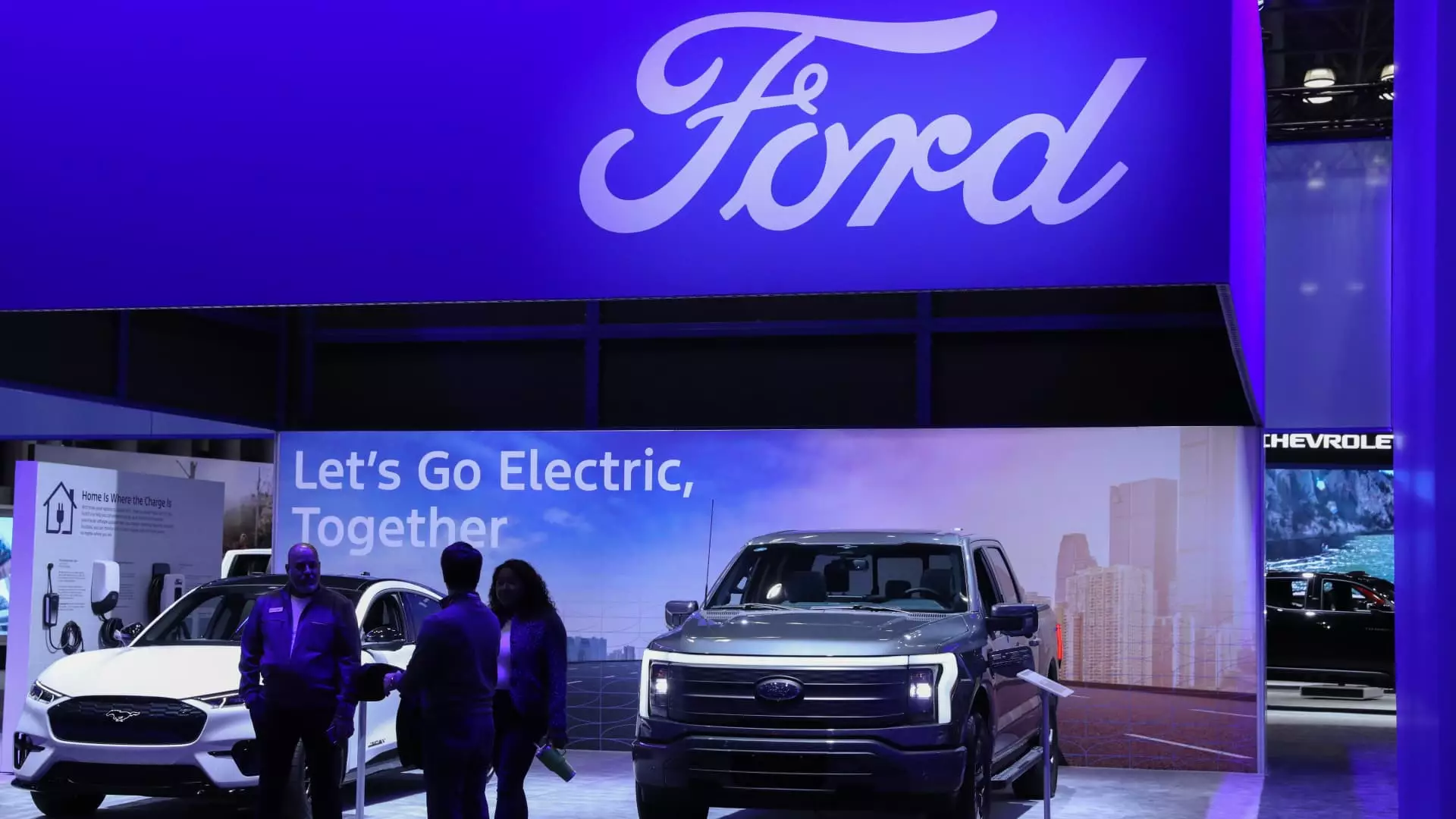Ford Motor recently announced that it is delaying the production of a next-generation all-electric pickup truck at a new plant in Tennessee and has decided to cancel plans for a three-row electric SUV. The company is shifting its focus towards the development of hybrid models and electric commercial vehicles, such as a new electric commercial van set to launch in 2026, followed by two EV pickup trucks in 2027.
Ford CFO John Lawler emphasized the shift in focus towards commercial land trucks and SUVs, as the company aims to leverage its competitive advantage in these segments. The decision to prioritize hybrid models and electric commercial vehicles is aimed at delivering a capital-efficient and profitable electric vehicle business for Ford in the long term.
The new strategy will result in some short-term costs for Ford, including a special noncash charge of approximately $400 million for the write-down of certain product-specific manufacturing assets. Additionally, the changes may lead to additional expenses and cash expenditures of up to $1.5 billion, which will be reflected in the company’s financials as a special item.
Ford is adjusting its future capital expenditure plans to allocate 30% of spending towards all-electric vehicles, down from the previous 40%. This shift in spending reflects the company’s commitment to focusing on areas where it can deliver value to customers and maintain a competitive edge in the market.
Vehicle production at the new $5.6 billion Tennessee site, initially scheduled to begin next year, has been delayed. However, Ford still plans to start battery cell production at the site in 2025. The changes in production timelines are part of Ford’s broader strategy to adapt to the evolving market conditions and customer preferences.
According to John Lawler, Ford’s decision to pivot its focus towards hybrid models and electric commercial vehicles is driven by customer feedback and the company’s commitment to providing more electrification choices to consumers. By being nimble and responsive to customer needs, Ford aims to strengthen its position in the electric vehicle market.
Ford has reiterated its commitment to launching vehicles that have a clear path to profitability within the first year of production. This marks a departure from previous strategies of selling EVs at a loss to gain market share and meet fuel and emissions standards. The company will continue to produce and update its current lineup of all-electric vehicles, including the Ford Mustang Mach-E crossover and F-150 Lightning pickup truck.
Ford plans to provide investors with an update on electrification, technology, profitability, and capital requirements in the first half of 2025. The company’s shift towards hybrid models and electric commercial vehicles reflects its long-term vision for sustainable growth and innovation in the electric vehicle market.

Leave a Reply